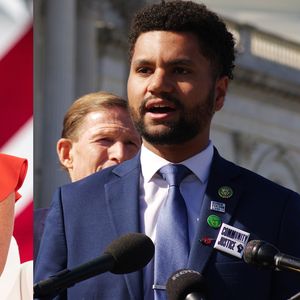 Above: Richard and Mildred Loving
Above: Richard and Mildred Loving
The U.S. Supreme Court hasn't had much to say about marriage rights for same-sex couples, but it has over a century of rulings on marriage concerning straight couples. Although it's impossible to predict how the court will rule in the pending marriage equality case, its 127 years of decisions set the stage for a pro-equality ruling this June.
One of the earliest major marriage rulings came in 1888, with Maynard v. Hill, which concerned divorce. Marriage is "the most important relation in life," the court ruled, "the foundation of the family and society, without which there would be neither civilization nor progress." That decision established that marriage is something special, worthy of scrutiny whenever the right to marriage is abridged.
That was followed by Meyer v. Nebraska in 1923. The court ruled that the Due Process Clause of the Fourteenth Amendment to the U.S. Constitution protects the right "to marry, establish a home and bring up children." The Due Process and Equal Protection clauses require that all laws treat people identically, and nearly a century later, they form a cornerstone of the argument in favor of marriage rights for same-sex couples.
The next few decades saw expanding legal protections for women, which meant a series of cases involving reproductive freedom. Those included Skinner v. Oklahoma (1965), Griswold v. Connecticut (1965), Roe v. Wade (1973), Carey v. Population Services International (1977), and Planned Parenthood v. Casey (1992).
Marriage is "one of the basic civil rights of man," "fundamental to the very existence and survival of the race," the court ruled in Skinner.
In Carey, the justices wrote, "among the decisions that an individual may make without unjustified government interference are personal decisions relating to marriage, procreation, contraception, family relationships, and child rearing and education."
In a particularly imaginative passage, the court ruled in Planned Parenthood that "at the heart of liberty is the right to define one's own concept of existence, of meaning, of the universe, and of the mystery of human life."
 Above: Estelle Griswold, pictured above right.
Above: Estelle Griswold, pictured above right.
It's hard to imagine, but until the Griswold case, states could ban all forms of contraception. And even that case was narrowly tailored to only apply to married couples. It wasn't until 1972, with Eisenstadt v. Baird, that the court ruled that it was unconstitutional for the government to arrest single people for using contraception. Once again, these cases were predicated on the Due Process Clause. Privacy, the court ruled, is protected by the clause.
Crucially, during that time the court heard the case Loving v. Virginia, which challenged laws against interracial marriage. Loving has emerged as a crucial precedent in the fight for equality. Modern-day anti-equality attorneys use the same discredited arguments that failed in Loving: that marriage bans are traditional, are religiously protected, or a matter of states' rights.
Those arguments simply aren't good enough to override the U.S. Constitution, the court ruled in 1967. "The freedom to marry has long been recognized as one of the vital personal rights essential to the orderly pursuit of happiness by free men," the court wrote.
That was followed by a divorce-related ruling in 1971, Boddie v. Connecticut, affirming previous rulings that carved out a special place for marriage. "Marriage involves interests of basic importance to our society" and is "a fundamental human relationship," the court wrote.
In 1974, the court again turned to Due Process to resolve Cleveland Board of Education v. LaFleur, a case involving maternity rules that barred pregnant women from working in schools. "Freedom of personal choice in matters of marriage and family life is one of the liberties protected by the Due Process Clause of the Fourteenth Amendment," the court wrote.
Then came Moore v. City of East Cleveland (1977), which challenged a law defining which family members were allowed to live together. "When the government intrudes on choices concerning family living arrangements, this Court must examine carefully the importance of the governmental interests advanced and the extent to which they are served by the challenged regulation," the court wrote.
The was followed by Zablocki v. Redhail (1978), challenging a law that required citizens to get permission from state officials before remarrying. One more time, the Supreme Court affirmed that marriage deserves special scrutiny: "The right to marry is of fundamental importance for all individuals."
Similarly, Turner v. Safley (1987) challenged a law that required prisoners to get permission to marry. "The decision to marry is a fundamental right," wrote the court.
In 1996, the Supreme Court ruled in MLB v. SLJ that courts must provide parents with the ability to defend custody of their children, without regard to their ability to pay for access to the legal system. "Choices about marriage, family life, and the upbringing of children are among associational rights this Court has ranked as 'of basic importance in our society,'" wrote the court, "rights sheltered by the Fourteenth Amendment against the State's unwarranted usurpation, disregard, or disrespect."
 Above: Mug shots of John Lawrence and Tyron Garner
Above: Mug shots of John Lawrence and Tyron Garner
Lawrence v. Texas (2003) has deep implications for marriage equality. That case overturned laws that allowed police to arrest gays and lesbians for having sex in their own homes. "Our laws and tradition afford constitutional protection to personal decisions relating to marriage, procreation, contraception, family relationships, and education," wrote the court. "Persons in a homosexual relationship may seek autonomy for these purposes, just as heterosexual persons do."
Crucially, in his dissent, Justice Antonin Scalia wrote, "What justification could there possibly be for denying the benefits of marriage to homosexual couples exercising 'the liberty protected by the Constitution'?"
He meant this as a critique of the ruling -- in other words, a warning that overturning antisodomy laws would open the door to overturning bans on same-sex marriage. It would seem that he was correct.
A decade later, the Windsor case provided the clearest window yet into the court's thinking on marriage.
In overturning a key section of the Defense of Marriage Act, Justice Kennedy wrote, "DOMA undermines both the public and private significance of state-sanctioned same-sex marriages; for it tells those couples, and all the world, that their otherwise valid marriages are unworthy of federal recognition. This places same-sex couples in an unstable position of being in a second-tier marriage. The differentiation demeans the couple, whose moral and sexual choices the Constitution protects."
 Above: Edie Windsor, victorious.
Above: Edie Windsor, victorious.
Once again, Scalia's dissent offered a prediction, intended as a warning, that would likely prove correct: "The real rationale of today's opinion ... is that DOMA is motivated by 'bare ... desire to harm' couples in same-sex marriages. How easy it is, indeed how inevitable, to reach the same conclusion with regard to state laws denying same-sex couples marital status," he wrote.
Sure enough, lower court judges found that the Windsor ruling did indeed require marriage equality. "The court agrees with Justice Scalia's interpretation of Windsor," U.S. District Judge Robert Shelby said in a Utah case, "and finds that the important federalism concerns at issue here are nevertheless insufficient to save a state-law prohibition that denies the Plaintiffs their rights to due process and equal protection under the law."
With a Supreme Court decision on marriage equality due any day now, it's hard to imagine the court ruling that marriage is not a fundamental right for same-sex couples. To do so would require turning its back on over a century of rulings that found marriage to be a fundamental right, protected for all by the U.S. Constitution.
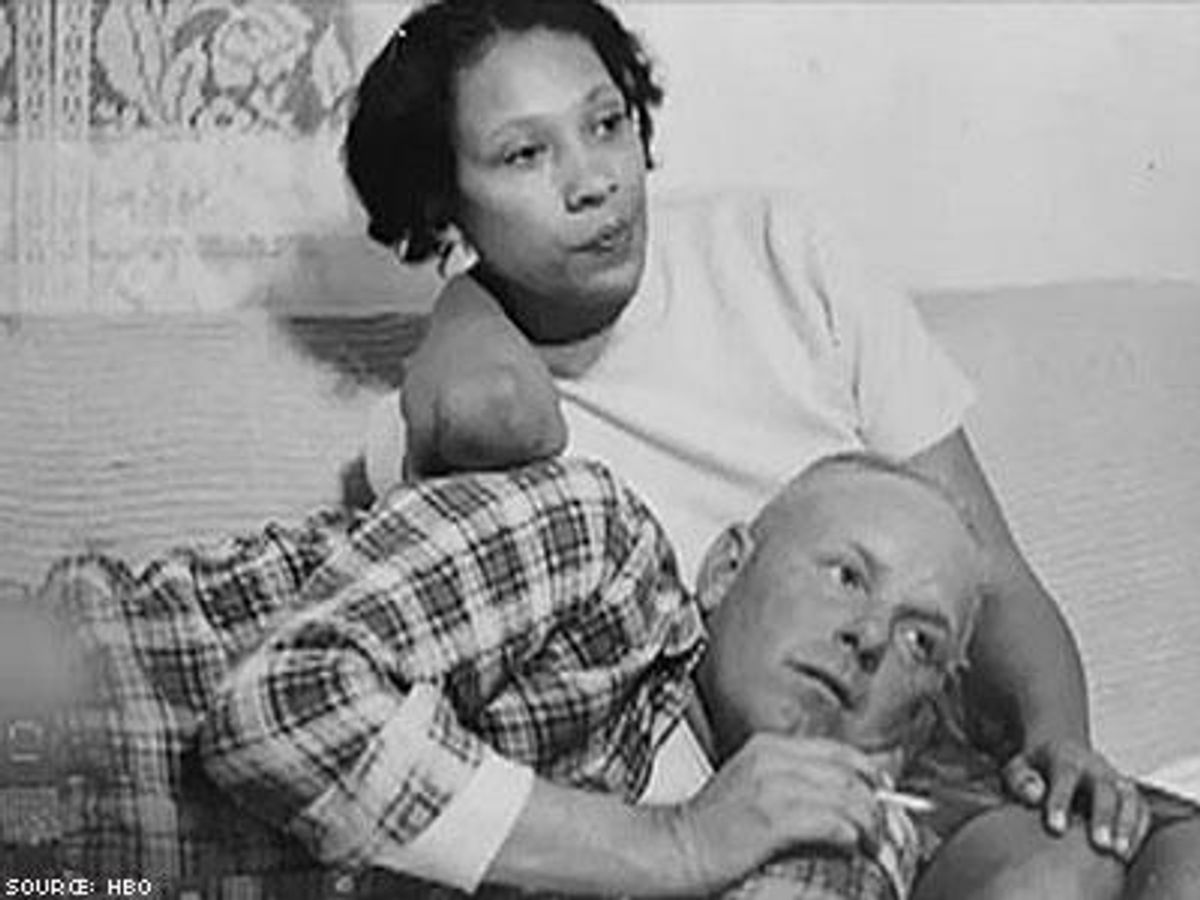

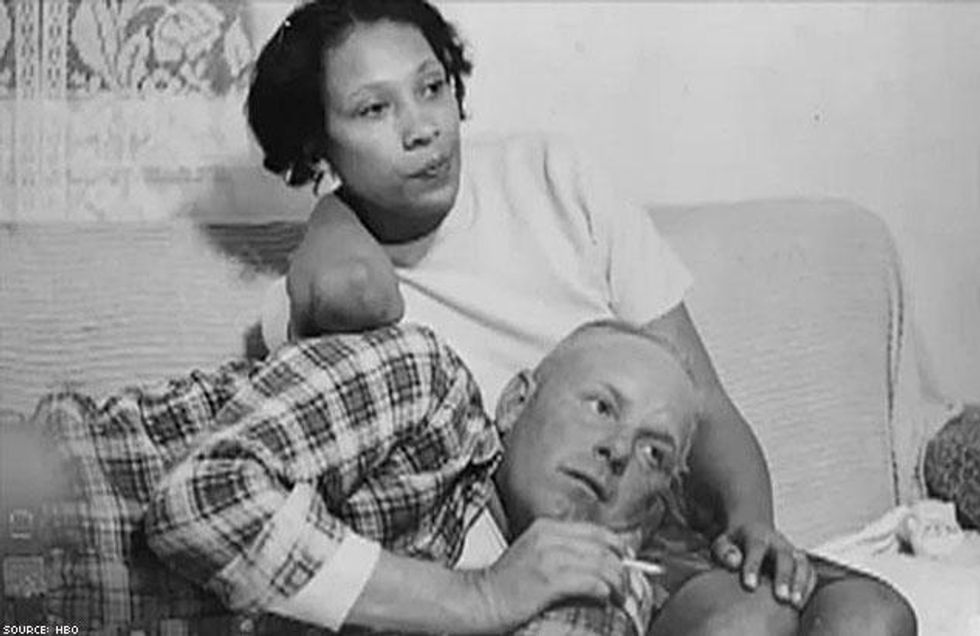 Above:
Above: 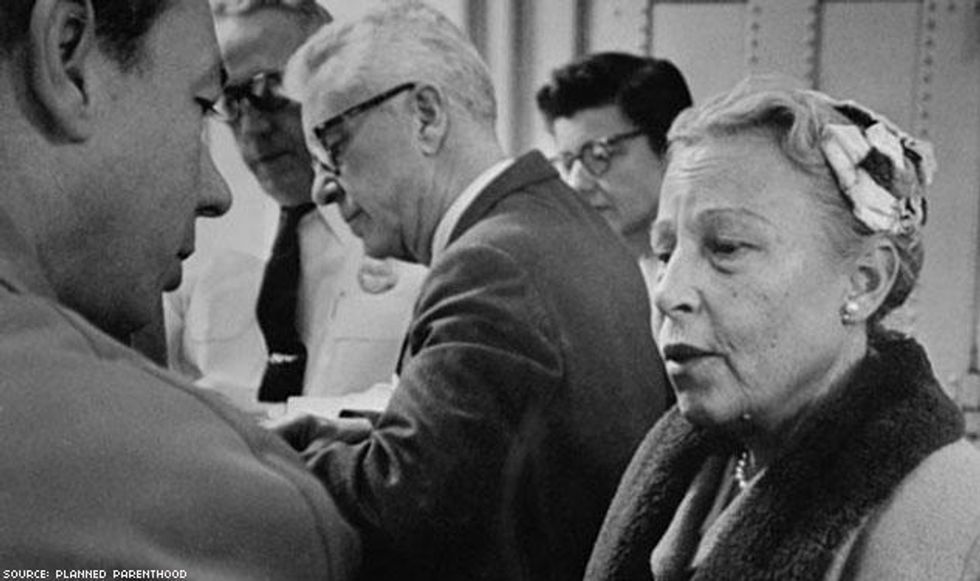 Above: Estelle Griswold, pictured above right.
Above: Estelle Griswold, pictured above right.
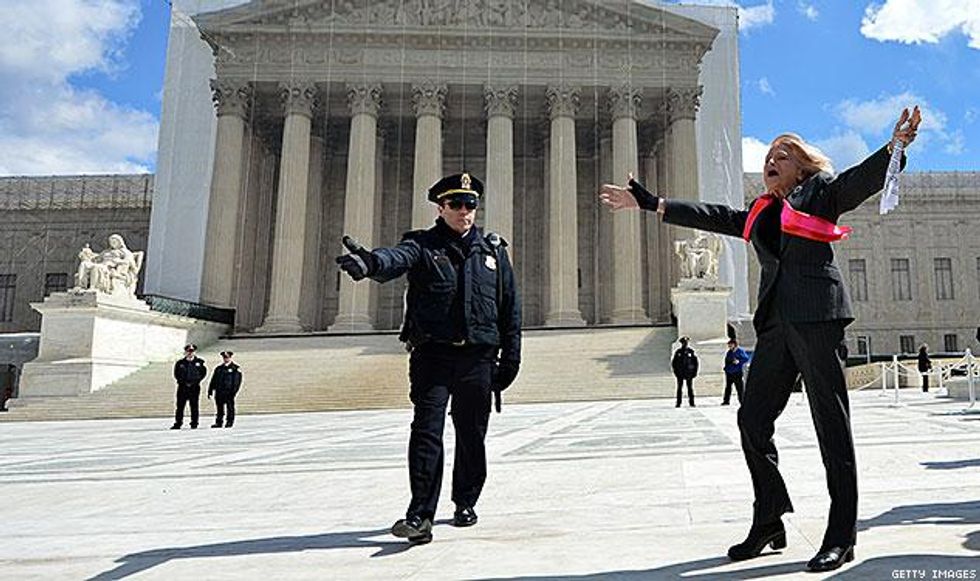 Above: Edie Windsor, victorious.
Above: Edie Windsor, victorious.








































































